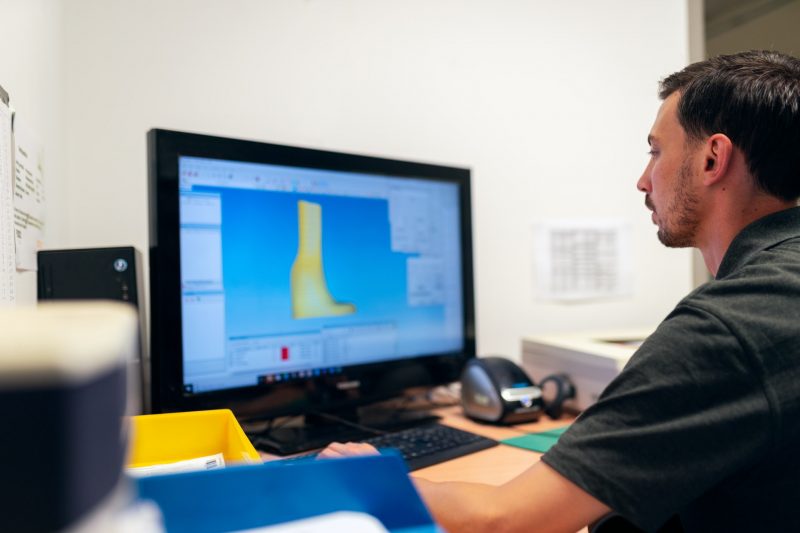While a bachelor’s in mechanical engineering can lead to some very satisfying and high-paying jobs, earning an advanced degree is always worth the effort as it can result in an increased salary and help you gain access to jobs that you wouldn’t get with a bachelor’s degree in mechanical engineering. However, you need to weigh the cost of the degree against your increased earning potential before returning to school, and evaluate why you want to get a master’s degree in mechanical engineering. Do you eventually want to earn a Ph.D. to work in academia, or are you looking to gain knowledge in a specialized area of mechanical engineering? Or are you seeking to improve your earning power? These are considerations that can help make getting a master’s degree in mechanical engineering worth it.
Is a Master’s Degree in Mechanical Engineering Worth it?
One thing to consider when comparing mechanical engineering bachelor’s vs master’s degrees is the fact that engineering is a field that puts a high value on experience. Going directly from an undergraduate degree program in mechanical engineering to a master’s degree program may not immediately work in your favor. It’s worth getting a job in the mechanical engineering field for a year or two, then taking an online degree program for a master’s in mechanical engineering to keep building your experience and earn an advanced degree.
You may run into people with a bachelor’s of mechanical engineering that has the opinion that getting a master’s degree isn’t worth it, and that experience is all you need to get ahead. There is some truth to this opinion, as there are employers who prioritize experience over education. But there are also employers who recognize the fact that a master’s degree shows you’ve made the effort to become more than proficient in a particular engineering discipline. Ultimately, getting a master’s degree in mechanical engineering, along with gaining practical experience, helps you get better jobs and higher compensation sooner than you would get with a bachelor’s in mechanical engineering and experience.
What Can You do With a Master’s in Mechanical Engineering Degree?
The most simple way to explain mechanical engineering is that it’s the designing or improvement of a physical object that helps people in their everyday lives. A mechanical engineer can find work in the automotive industry where they find ways to improve existing internal combustion engine technology or create electric vehicles from the ground up. Another area where mechanical engineers find employment is designing and building machinery and equipment for production lines that are needed to make parts of a product, get a product into its package, and enclose the package so it can be sorted for shipping. Just about everything that people use on a daily basis was designed and made through mechanical engineering.
Some of the jobs for a mechanical engineer include:
- Kinematics
- Material science
- Fluid mechanics
- Manufacturing
- Machine design
- Robotics design
- Automotive engineering
- HVAC engineer
As previously noted, the field of mechanical engineering is a vast one, and it’s important to gain work experience after earning a bachelor’s degree. Once you’ve figured out where you shine best in mechanical engineering, you can return to school and earn your master’s in mechanical engineering in your preferred discipline. You gain more satisfaction out of your career when you work in an area of mechanical engineering that you enjoy, and also improve your earnings potential because your focus helps you become great at what you do.
How Much Can I Make With a Master’s in Mechanical Engineering?
According to the Bureau of Labor Statistics, the median pay for a mechanical engineer with a bachelor’s degree was $90,160 per year in 2020. When comparing a mechanical engineering salary of bachelors vs masters, it’s obvious that the average compensation for having a bachelor’s degree in mechanical engineering is on the high side. Someone who is just starting their career in mechanical engineering is going to earn less than someone who has experience in their role, but even then, the lowest starting salary is around $50,000 per year and rises quickly from there as experience is gained.
Job growth for the field of mechanical engineering is expected to rise 7% from 2020 to 2030, which is the same as the average projected growth for all industries. A majority of the openings are expected to come from the need to replace retiring workers as opposed to industry growth.
The role of a mechanical engineer is one that society and industry will always need to help make daily life better. There will always be employment for someone who has a bachelor’s or master’s in mechanical engineering, regardless of predicted job outlooks for the field.
Related Rankings:
25 Best Bachelor’s in Mechanical Engineering
5 Best Online Bachelor’s in Mechanical Engineering
10 Most Affordable Bachelor’s in Mechanical Engineering
